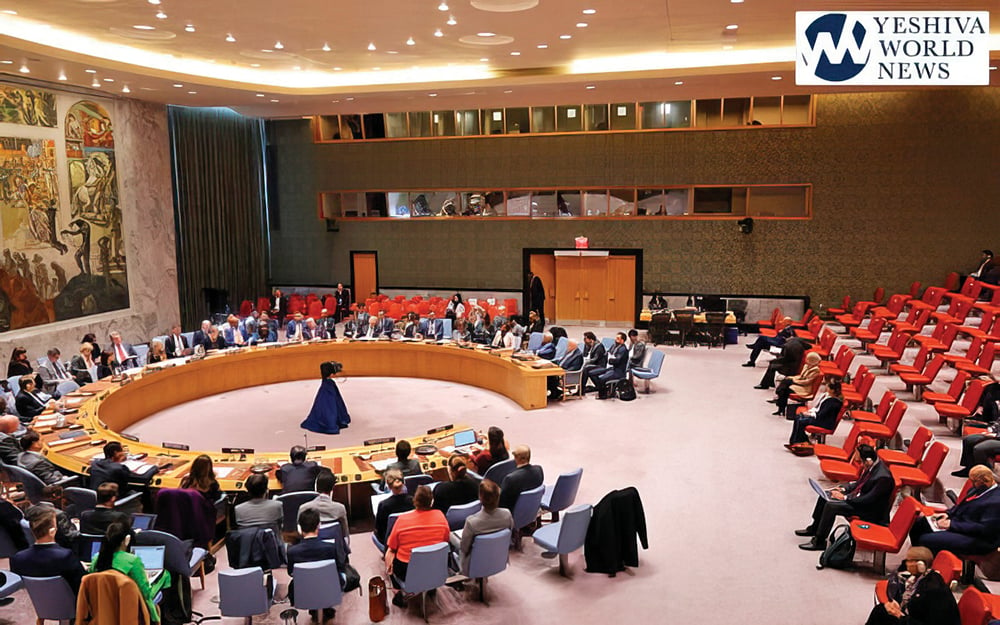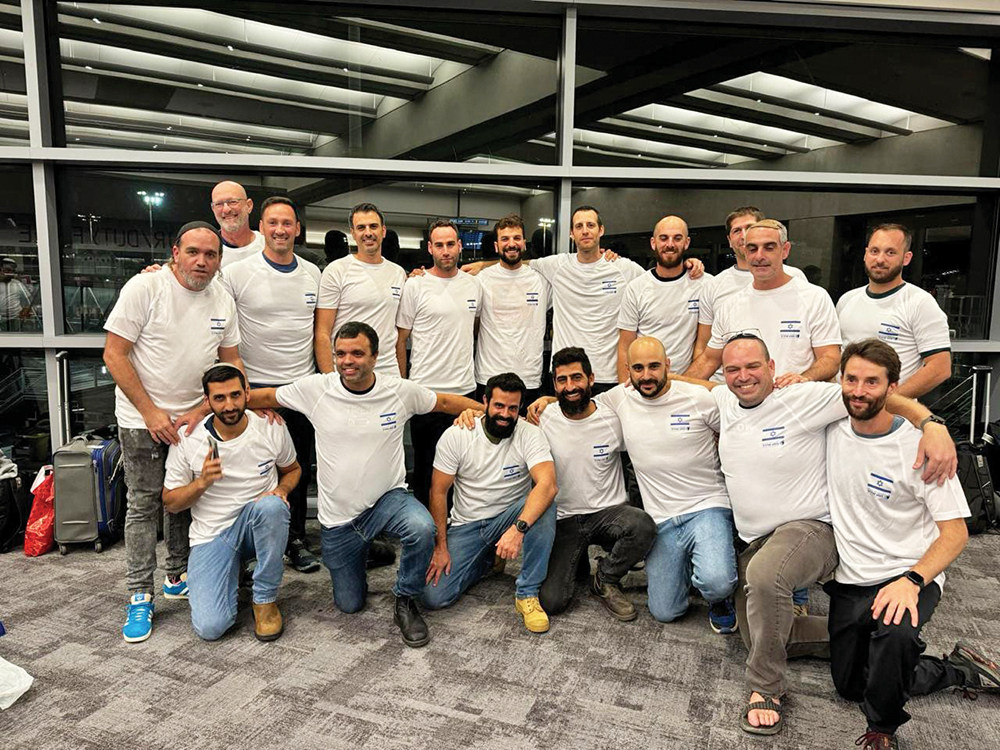Pidyon shvuyim, the rescuing of captives, is one of the greatest mitzvos in the Torah. The Rambam writes that whoever fulfills this mitzvah is mekayem, fulfills, no less than eight mitzvos in the Torah. Before we enumerate these mitzvos, however, I would also like to suggest that there is a forgotten hero of pidyon shvuyim. He is a man that engaged in this mitzvah on his own—on three separate occasions in just one day over half a century ago.
I remember that day and I remember my parents, a”h, talking about that fateful day 53 years ago. Since it was my mother’s yahrzeit, I tried to meet that forgotten hero. A month ago, I found him and spent a good part of that day with this 91-year-old forgotten hero. I video-taped Uri Bar Lev for several hours that Thursday. He revealed to me many details of what had transpired, and a few of them, for the first time.
It was the fifth of Elul, 5730, September 6, 1970. This was a time when evil people first began to take guns and explosives to threaten human lives, hundreds of innocent human lives. It was also a time when people first began to blow up airplanes.
On September 6 of 1970, four planes were hijacked. The planes were flown to an abandoned British airfield in Jordan. Rav Hutner, zt”l, and his daughter were on one of those planes.
But there was another plane that evil people had planned to hijack—El Al flight 219. What follows is a description of three events that took place on that flight, and an expression of hakaras hatov to Captain Uri Bar Lev, about whom no book was ever written, no documentary ever made and no movie ever produced.
El Al flight 219 originated from Ben Gurion Airport and flew to Amsterdam on its way to New York. The new crew, including its captain, Bar Lev, took over from Amsterdam to New York.
Also boarding that flight were two suspicious people: Leila Khaled and Patrick Arguello, flying under assumed names.
Soon after takeoff, Bar Lev and his co-pilot got word that two terrorists were hijacking the plane. They locked the door to the cockpit. The terrorists had shot and gravely wounded an El Al flight attendant. They put a gun to the head of a stewardess and told her to tell the pilots that if they did not open the door, they would shoot her in the temple.
Bar Lev had a plan. Years earlier, a Boeing trainer had told him that the new 707 had the versatility of a real fighter plane. Bar Lev, who flew for the Israeli Air Force then asked him if the 707 was capable of doing climbing and diving maneuvers. The instructor said, “Yes, but don’t go over negative 2G.”
Bar-Lev had to save the stewardess, and all of the passengers who were about to be hijacked. He had enough altitude to put the plane in a steep dive. The aircraft plummeted 3,300 meters in under 60 seconds. His passengers would be in for the ride of their lives, but they were all seated and strapped in.
On the other hand, a terrorist does not strap himself in nor does he or she sit down. They would be too easily overpowered. As Bar Lev knew would happen, Arguello and Khaled would be thrown to the floor by virtue of the G force.
Bar Lev, who had stowed one of the Shabak sky marshals in the cockpit because of his suspicions, instructed him to go out the moment that he leveled the plane back. Both that sky marshal and the second Shabak sky marshal who was in the back of the plane, came forward and shot Arguello dead. Khaled was subdued.
His superiors in Israel were aware of the other hijackings, but did not tell Bar Lev. They instructed him to fly immediately back to Israel. But one of the stewards was injured. Bar Lev looked at him and saw he was a very pale white. The steward said, “Uri, mah yikreh li, Uri, what will be with me?”
A doctor on board told Bar Lev that the steward would be fine. Bar Lev inquired as to the doctor’s specialty. He answered that he was a dentist. Bar Lev then disobeyed the orders of his superiors and radioed into London’s Heathrow Airport, requesting permission for an emergency landing. “Mayday! Mayday, I have an injured steward!” he said.
It was granted.
I told Bar Lev of the Mishna in Sanhedrin that says, “Whomsoever saves one life…” Although completely secular, he finished the Mishna by himself. He told me that his zaideh was a rav in Ukraine and Poland.
Back on the plane, he knew that there would be an investigation, because of the dead body of Arguello. Three months earlier an Israeli sky marshal had killed a terrorist in France and was placed in jail. Bar Lev radioed another El Al pilot and in coded Hebrew worked out that the two Shabak men would leave via the luggage compartment and enter into the same on another airplane. Tickets were issued to the two Shabak men and they were regular passengers on the second plane.
In the meantime, the steward, Shlomo Videl, was taken to the hospital in London and survived.
What happened to Bar Lev? The Israeli government was not happy with him for disobeying instructions. There were hearings and inquiries, but Bar Lev stood his ground. What is the chain of command in such an event? Is the captain in charge of the safety of his passengers or does the Shin Bet retain authority? Ultimately, it was resolved that the captain is in charge, but there were repercussions to his career.
This author believes that from a halachic perspective, Bar Lev did everything right. He was a true hero in every sense of the word. El Al and Shabak did not see things the same way. Bar Lev retired three and a half years later.
The terrorist Khaled spearheaded the hijacking movement which culminated in what we know as the post 9-11 world we live in today. Every time we take off our shoes and belts, and remove laptops from their cases, before we board our flights we must thank Khaled. Indeed, a sycophantic adulatory movie was made about her while the pidyon shvuyim hero, Bar Lev, remains obscure.
The new administration of El Al should consider looking into this matter and maybe correct this half century wrong. The world has gone mad and morally bankrupt. We need true heroes and Captain Uri Bar Lev is an unsung true hero.
What were his three separate actions that day? He saved a planeload of people from becoming hostages—pidyon shvuyim in the most pristine form. He saved the Shabak sky marshalls—more pidyon shvuyim. And he saved Videl, the steward, from death. In each of these three actions he fulfilled the Rambam’s eight mitzvos in pidyon shvuyim. (8×3= 24)
- Lo saametz es levavcha, do not tighten your heart. (Devarim 15:7)
- V’lo sikpotz es yadcha, nr shall you tighten your hand. (Devarim 15:7)
- Lo saamod al dam rayacha, do not stand idly by your brother’s blood. (Vayikra 19:16)
- Lo yirdeno beferech leainecha, do not let him go down in excessive labor in front of your eyes. (Vayikra 25:53)
- Pasoach tiftach es yadcha lo, you shall surely open your hand for him. (Devarim 15:8)
- Vechai achicha imach, and your brother shall live with you. (Vayikra 25:36)
- Veahavta lerayacha kamocha, love your friend as yourself. (Vayikra 19:18)
- Hatzel lakuchim lemaves, save those taken toward their death. (Mishlei 24:11)
Pidyon shvuyim isn’t just paying ransom money. We see from the geula, redemption, in Egypt that the verb pidyon refers to physically taking captives out as well. We can redeem these shvuyim physically as Bar Lev did. Wishing everyone a gut yar, good year, and a gut Shabbos, and to the Bar Lev family as well.
The author can be reached at [email protected].












